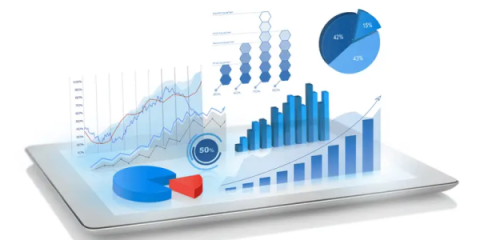
Data visualization is key to obtaining value from your data, it’s essential that you have interactive visualization tools to provide a graphical representation of your data, with a good visual display of your data sets, key decision makers have everything they need to make business decisions and obtain the most value from those data sets.
Grafana
Grafana is a popular open-source tool for data visualization. It offers customizable dashboards that you can use to monitor your data in real time. You can download premade dashboards or design your own from scratch to achieve a visual display of your key metrics. The main benefits of Grafana are as follows:
- Web application that’s easy to deploy and use on many platforms
- Compatibility with a wide variety of data sources
- Cloud and on-premises options with free and paid account types
- Open-source software
Google Data Studio
Data Studio is a free data analytics platform developed by Google. In Data Studio, you can create customizable dashboards and reports to display your data any way you want. The main benefits of Data Studio are as follows:
- Compatibility with Google and third-party products through connectors
- Good variety of visual display elements, such as pie charts and bar charts, that you can use to create your dashboards and reports
- Easy collaboration with other team members
- Free to use
Tableau
Tableau is data visualization software produced by Salesforce. By using Tableau, you can easily create visual displays of even the largest data sets. The main benefits of Tableau are as follows:
- Interactive data visualization components from bar charts to heat maps that enable quick and convenient report creation
- Strong community for product support
- High performance for large data sets
Microsoft Power BI
Power BI is business intelligence and reporting software produced by Microsoft. With Power BI, you can import data and transform it to obtain the visual display that makes it easiest to understand. The main benefits of Power BI are as follows:
- Very strong data transformation capabilities by means of the Power Query feature
- Integration with other products in the Microsoft Power Platform
- Data security capabilities for sensitive data
